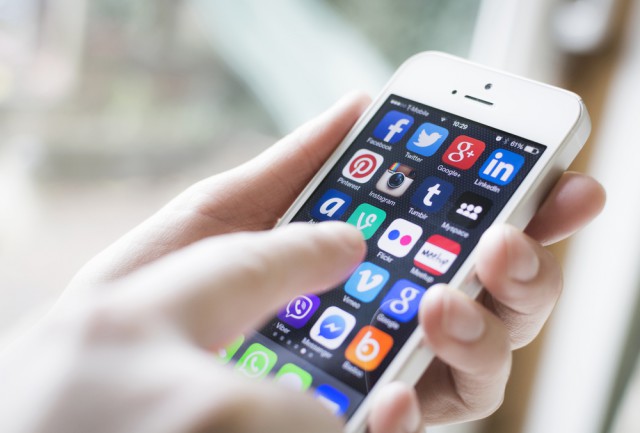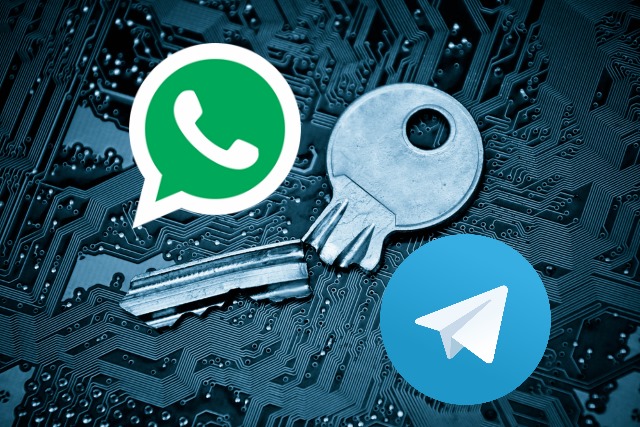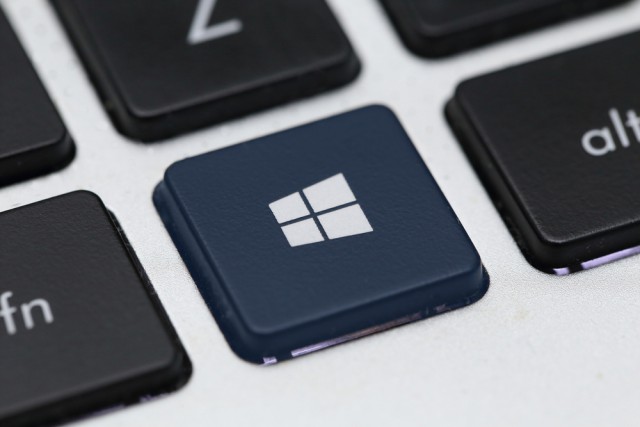
US indicts Russian spies and hackers over 2014 Yahoo hack
The US Justice Department is charging two Russian spies and two hackers with orchestrating the attack against Yahoo in 2014 that saw 500 million accounts being compromised as part of an effort to collect intelligence.
The Justice Department says that Dmitry Dokuchaev and Igor Sushchin "and other known and unknown" FSB intelligence officers hired hackers Alexsey Beland and Karim Baratov to hack Yahoo accounts belonging to Russian journalists, officials, and employees of a "prominent" security company, as well as US officials and employees of tech companies.

Nearly 200,000 apps aren't ready for iOS 11
Even though Apple released the first iOS device with a 64-bit processor three and a half years ago, there are still nearly 200,000 titles in the App Store that have not been optimized for those iPhones and iPads. And that will soon turn into a major problem for developers and users alike.
Starting with the next version of iOS, Apple plans to drop support for apps that are not updated to support 64-bit iPhones and iPads, a move which is expected to affect roughly 187,000 titles based on a Sensor Tower report.

Women still underrepresented in information security
Women make up only 11 percent of the cyber security workforce according to the latest report from the Center for Cyber Safety and Education -- formerly the (ISC)² Foundation -- and the Executive Women's Forum (EWF).
The survey of more than 19,000 participants around the world finds that women have higher levels of education than men, with 51 percent holding a master’s degree or higher, compared to 45 percent of men.

The challenges of adopting DevOps
DevOps has become enormously popular as a means of speeding up tech projects, but a new study reveals the challenges that organizations face in adopting it.
The survey from sandbox specialist Quali finds the top barriers to DevOps success include the respondent's company culture (14 percent), challenges of testing automation (13 percent), legacy systems (12 percent), application complexity (11 percent), and budget constraints (11 percent).

In-game advertising should be fun
The issue of ad blocking once again resurfaced at the 2017 Mobile World Congress. Leading network provider, O2 announced that it is looking to give users the ability to block ads if they feel "plagued by advertising." This follows on from similar threats at the 2016 MWC from Three Mobile -- another leading network provider in the UK. Although there have been no legislative changes or work regarding ad blocking, the debate is very much in the headlines and in the public domain.
Ad blocking uptake has slowed, but brands should not be resting on their laurels just yet. According to statistics from Campaign magazine, during 2017, 41.1 percent of millennials will use ad-blockers, versus 26.9 percent of Generation X and 13.9 percent of baby boomers. The increase in mobile phone usage will force marketers to think more carefully about exactly how they will reach these people, so that users do not feel interrupted, specifically during mobile gaming. Consumers are so used to advertising on television and radio, but mobile is a very different medium. Ultimately, advertisers need to be less invasive and more creative in their approach to reach their target audience.

Sleeper accounts wait for at least a week before launching cyber attacks
Sleeper cell accounts which appear normal and hide among normal users, waiting for long periods of time to age the account before striking, are the latest technique being used by cyber attackers.
These accounts are often used for testing or carrying out the attack in stages, according to fraud and financial crime detection service DataVisor.

Google teaches one million African people to use the web
While this might be surprising to millennials, not everyone grows up with computers. It wasn't until I was in high school that my family was able to afford a PC. While I learned quickly, I was already many years behind my more well-off peers. Nowadays computers are much less expensive, enabling more folks to own them, but there are still many people around the globe, in places like Africa, that can't afford one. This means they will fall behind the rest of the world on essential skills, such as using the web.
Google was not satisfied with this, however, so it set out to teach more people how to use the web. Last year, the search giant set a goal of training one million African people to use it. Today, the company announces that it has finally met the goal!

Secret Double Octopus eliminates enterprise passwords
No, we're not talking about the James Bond of the cephalopod world getting his tentacles on your security. Secret Double Octopus is an intriguingly named Israeli company that’s launching a new authenticator app for enterprises.
Authentication systems have traditionally relied on a single layer of protection, such as SMS, tokens, push notifications and biometrics. Secret Double Octopus uses a multi-shield authentication process for users to verify or reject a login attempt, payment or transaction.

End-to-end encryption exploit left WhatsApp and Telegram vulnerable to hackers
When WikiLeaks' Vault 7 revelations about the spying capabilities and techniques were unleashed, there was concern about a number of popular apps and services that -- the documents suggested -- had been compromised. Included in this list are popular, secure chat apps WhatsApp and Telegram, and Check Point software has just released details of a vulnerability that left millions of user accounts exposed to hackers.
Google was recently criticized for releasing details of a security hole in Windows (and, subsequently another one in Internet Explorer and Microsoft Edge) before Microsoft had patched it. In fact, it was a third party who jumped to the rescue, issuing patches before Microsoft. This time around, however, after notification of the problems from security firm Check Point, WhatsApp and Telegram both patched the security holes within a week.

Here's how to be among the first to get the Windows 10 Creators Update [Updated]
The Windows 10 Creators Update is set to arrive next month, and Microsoft is rolling out new builds to Windows Insiders at a rate of two a week at the moment. Build 15058 was released yesterday, and Microsoft intends to push out a second update by the end of the week.
As with all big new updates to Windows 10, you won’t simply be able to get it on the day of release. The rollout will be staggered, and that might mean you waiting days or even weeks to get your hands on the Creators Update. But there is a way to be first in line.

How strong endpoint security can prevent cyberattacks
Businesses with dispersed and on-the-move employees are struggling to strike a difficult balance between the benefits of remote working and the security risks it creates. Security software designed to protect data at risk is nullified if it can be removed. To achieve their own stringent security aims while satisfying the demands of increasingly tight and punitive regulation, companies need a more persistent security solution.
Many organizations consider it to be only a matter of time before they fall victim to a cyberattack. PwC's 2016 Economic Crime Survey revealed that over half of responding UK organizations consider it likely they’ll suffer from cybercrime in the next two years. The prevalence of cybercrime makes detection and response capabilities critical in business today.

Businesses deploy technology in search of the 'continuous enterprise'
Today's technology companies are focused on delivering new ideas fast, resulting in systems being rebuilt around the needs of developers, and companies piloting and adopting new technologies like microservices and containers in search of speed.
Automation specialist Chef Software has released the results of a survey of over 1,500 IT practitioners and decision-makers across app, infrastructure, security and cross-functional teams. The findings show technology rollout increasing faster than headcount.

Windows 10 Creators Update Build 15048 ISO images available now
If you’re thinking of joining the Windows 10 Insider program, or you just want to do a clean install with an up to date version of Windows 10, the good news is Microsoft has released a new ISO image.
The image, for Build 15048, is available to all, and you can download it now. This build rolled out to Insiders on the Fast ring twelve days ago so it's not the latest release -- that would be Build 15058, which Microsoft released yesterday -- but it includes a lot of important bug fixes, and a Windows Mixed Reality demo you can try.

Gmail for Android now does money transfers
If you need to transfer money, there's no lack of options nowadays. Of course you can always use dinosaur-like methods, such as ACH or wire transfers from an old-school bank, but in 2017, there are many apps and services that can move the funds too, such as PayPal.
Today, Google introduces yet another way to move funds, but no, it is not a new app or service. Actually, it is an existing app that is already installed on most Android devices -- Gmail. Yeah, you can now send and receive money using the email client on Google's mobile operating system, just as you already can with the web version.

Windows 10 Creators Update Build 15058 for PC arrives on the Fast ring
The Windows 10 Creators Update is only a matter of weeks away from launch now, and Microsoft is working hard to get the OS ready for release.
Preview Build 15055 rolled out to Insiders on the Fast ring last Friday, and today we have another new build for PC (a new Mobile build is expected to arrive later in the week).



